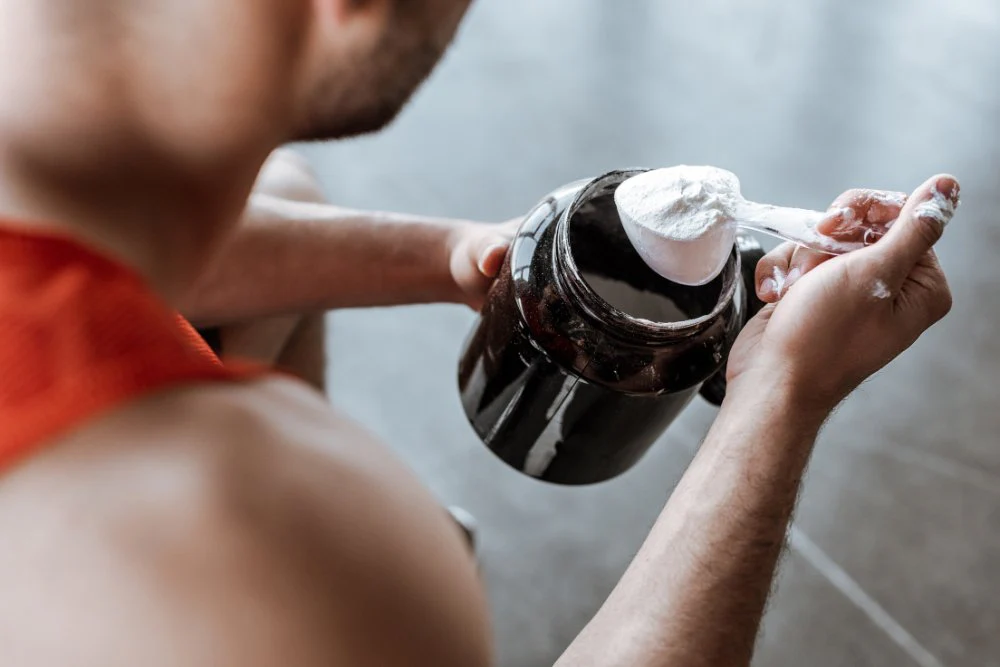Protein Powder for Beginners: Types and Benefits
If you're starting a fitness journey or simply aiming to improve your nutrition, you've probably heard about protein powder. From gym-goers to health-conscious eaters, it’s become a staple in many diets.

Recent Blogs
- Post-Workout Nutrition: How to Recover Right
- Travel Smart and Confidently On Your First Adventure
- Boho Chic to Japandi: A Guide to Popular Interior Styles
- Top 10 Must-Have Travel Gadgets for Digital Nomads in 2025
- Top Ingredients to Look for in Skincare Products
- How to Stay Fit While Traveling: Tips and Essentials
- How to Use Mirrors to Enhance Light and Space
September 25 02
If you're starting a fitness journey or simply aiming to improve your nutrition, you've probably heard about protein powder. From gym-goers to health-conscious eaters, it’s become a staple in many diets. But with so many types and flavors on the market, beginners often wonder: Which protein powder is right for me? In this guide, you’ll learn what protein powder is, how it helps, and which type suits your fitness goals.
What Is Protein Powder?
Protein powder is a concentrated form of protein derived from animal or plant sources. It’s typically used to support muscle recovery, increase daily protein intake, or serve as a meal supplement. It can be mixed with water, milk, smoothies, or even added to recipes.
Why Is Protein Important?
Protein is essential for:
- Building and repairing muscles
- Maintaining a healthy metabolism
- Supporting immune function
- Controlling hunger and promoting satiety
- Aiding weight loss and fat management
While you can get protein from foods like meat, eggs, and legumes, powders offer a quick, convenient, and efficient way to meet daily requirements.
Types of Protein Powder
1. Whey Protein
- Source: Milk (byproduct of cheese production)
- Absorption: Fast
- Best for: Post-workout recovery, muscle growth
- Forms:
- Whey concentrate – budget-friendly with small amounts of carbs and fat
- Whey isolate – more refined, higher protein percentage, low lactose
- Whey hydrolysate – pre-digested for faster absorption
- Whey concentrate – budget-friendly with small amounts of carbs and fat
2. Casein Protein
- Source: Milk
- Absorption: Slow (up to 7 hours)
- Best for: Overnight recovery, preventing muscle breakdown during fasting
- When to take: Before bed or long fasting periods
3. Plant-Based Protein
- Source: Pea, rice, soy, hemp, or a blend
- Best for: Vegans, those with dairy intolerance
- Tip: Choose blends (e.g., pea + rice) for a complete amino acid profile
4. Egg White Protein
- Source: Egg whites
- Absorption: Medium
- Best for: Those avoiding dairy and soy
- Note: High bioavailability and naturally fat-free
5. Collagen Protein
- Source: Animal bones and connective tissue
- Best for: Joint, skin, and hair health rather than muscle building
- Often used: In wellness smoothies or beauty-focused supplements
How Much Protein Do You Need?
General daily protein needs vary by goal:
- Sedentary adult: 0.8 g/kg of body weight
- Active adult or beginner training: 1.2–1.6 g/kg
- Muscle building or weight loss: 1.6–2.2 g/kg
Example: A 70 kg person aiming to build muscle would need 112–154 g of protein per day.
If your meals fall short, that’s where protein powder comes in handy.
When to Take Protein Powder
Post-Workout: Ideal for recovery and muscle growth
Between Meals: To boost protein intake and control hunger
Breakfast: Add to smoothies or oatmeal for a protein-rich start
Before Bed: Use casein or a blend for overnight recovery
Common Myths for Beginners
“Protein powder makes you bulky.”
Not true—muscle growth depends on training, calories, and hormones. It won’t bulk you up without proper strength training and diet.
“You don’t need supplements if you eat healthy.”
Whole foods are best, but protein powder is a convenient tool to help meet needs, especially for busy people.
“All protein powders are the same.”
Different sources, processing methods, and ingredients affect quality, taste, and digestibility.
Tips for Choosing a Protein Powder
- Check the protein per serving (20–25g is ideal)
- Avoid added sugars and artificial fillers
- Look for third-party tested brands (e.g., Informed Choice, NSF Certified)
- Pick a flavor you’ll enjoy—vanilla, chocolate, and unflavored are most versatile
- Read reviews for mixability and taste
Easy Ways to Use Protein Powder
- Mix with water or milk for a shake
- Blend into smoothies with fruits, oats, or nut butter
- Stir into Greek yogurt or oatmeal
- Bake into pancakes, muffins, or protein bars
Final Thoughts
Protein powder is a beginner-friendly supplement that supports muscle recovery, aids weight management, and fills nutritional gaps. Start with a well-reviewed whey or plant-based option based on your diet and preferences. Use it consistently along with a balanced diet and regular exercise to see real results over time.
Comment:
Your email address will not be published. Required fields are marked *
Our Top Picks
No products found.








